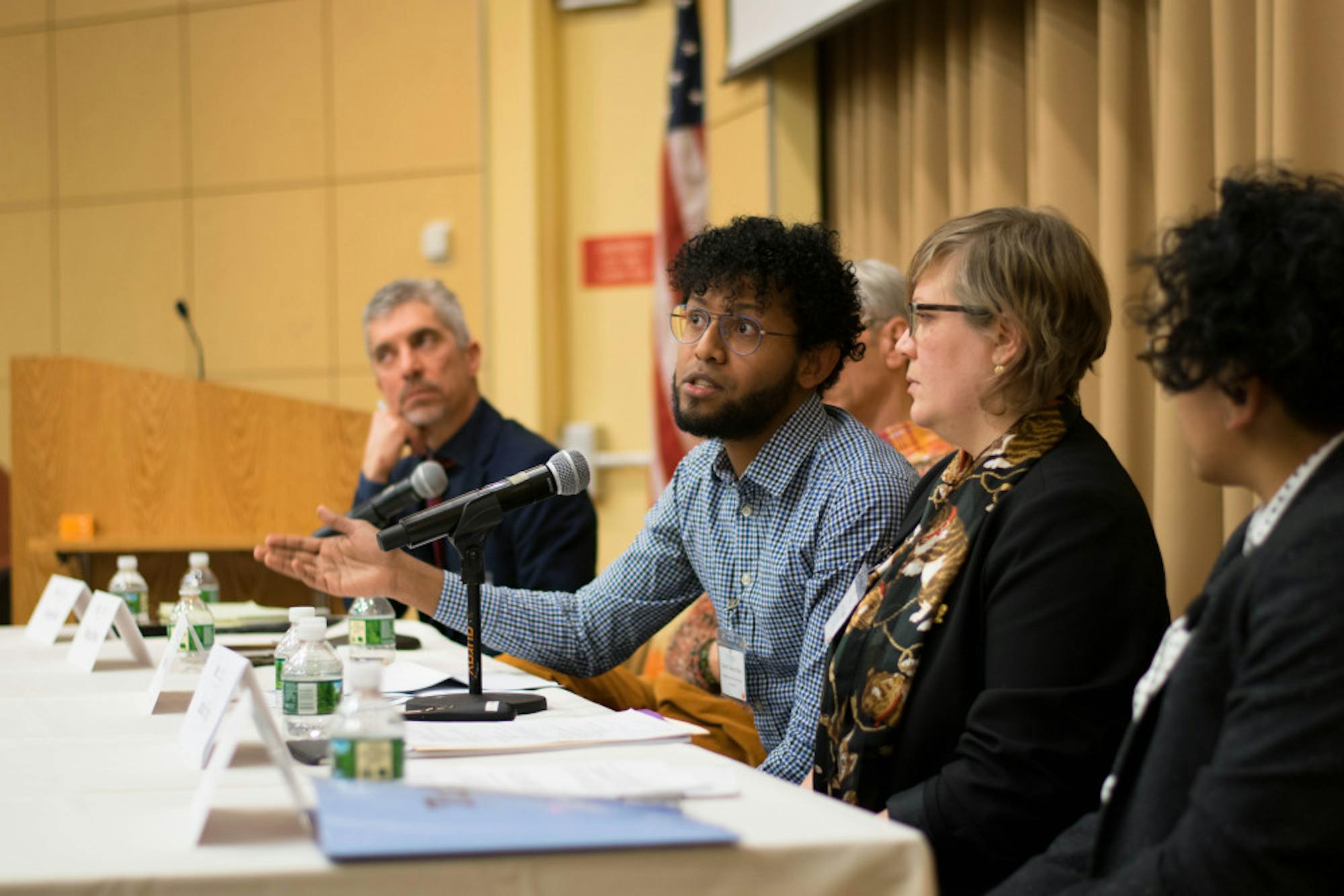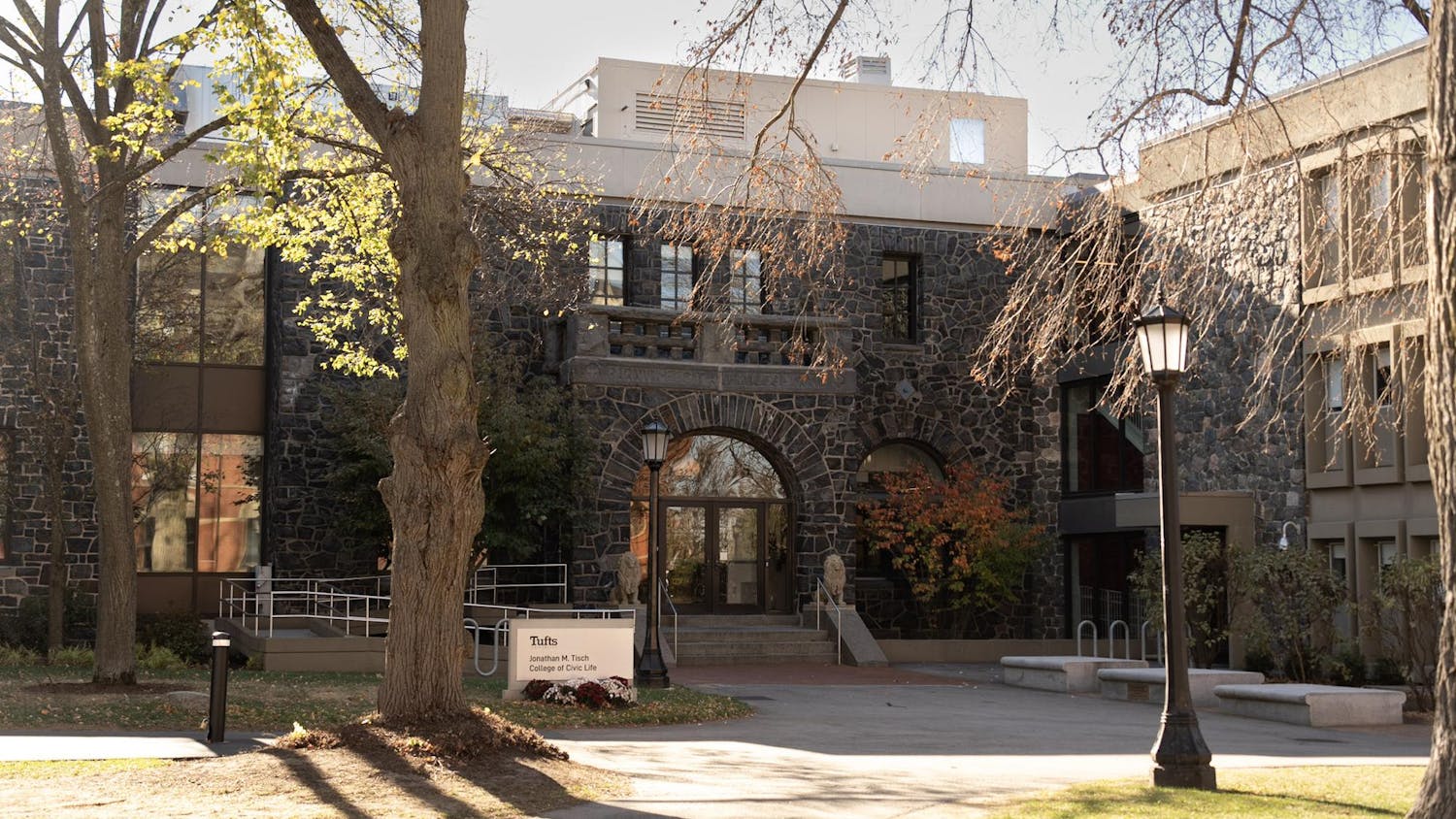On Nov. 17 and 18, The Fletcher School of Law and Diplomacy hosted its third annual Conference on Gender and International Affairs, entitled “Money, Power and Influence: The Gendered Dimensions of Geopolitics.” Through five panel discussions,a breakout session, keynote and film screening the conference explored inclusivity and addressed intersectionality in international relations, nuclear security, data collection, impact investing and gang violence.
Heba El-Hendi, the marketing and outreach chair for the conference and a second-year MALD student, said she was in charge of reaching a diverse audience of conference attendees. She said the conference focused on recruiting a wide range of individuals with diverse experiences, both to serve as panelists and for the attendees themselves.
“[Gender] is not just a code word for ‘woman.' It’s important to have diverse groups in the crowd because they are part of the conversation,” El-Hendi said.
Will Boyd II, a MALD student, served as emcee for the Gender Gala, an artistic event featuring art, music and poetry on Friday evening. Boyd said he attuned Gender Gala attendees to issues of intersectionality by reading Maya Angelou’s poetry there. Boyd said Angelou's poetry provided a needed perspective on the plethora of identities -- race, socioeconomic status and class -- that are at play in conversations about gender.
“Through this evening, we hope to render visible the power structures which intentionally and systemically disempower. The showcased work will highlight how individuals and communities in these systems resist and struggle to resist this disempowerment,” the Facebook page for the Gender Gala event states.
El-Hendi credited Boyd as one of the men responsible for engaging male Fletcher students around attending the conference. Boyd said he helped bring men to the event by challenging five specific men to attend. These five men would then each be expected to challenge one other man to attend.
Boyd said he convinced men their presence was essential by addressing misconceptions they might have about the conference, like the idea that their presence would not be valuable at a conference that they might associate primarily with women and feminist sensibilities.
“There are countless reasons to attend the Gender Conference. This is for the men at Fletcher who will show everyone that yes, we care, it pertains to us, and we are here to break the mold and show up in crazy numbers and have a great time,” Boyd wrote in an email to the first five recipients of the challenge.
Boyd said that the “Gender in Nuclear Security” panel proved particularly interesting for male attendees, who often associate concepts of war with masculinity by default. He said the panel illuminated that women can also be involved with decisions to use violence.
“What was of particular interest was the idea that concepts of violence and women is often considered an anomaly… That being said, the masculine institutional make-up of government may result in similar decisions, whether male or female are in power to make decisions, which contradicts many generalizations of women and their more peaceful and nurturing nature,” Boyd told the Daily in an electronic message.
El-Hendi said that the gender ratio among attendees at the conference approached the 35/65 number she had aimed to achieve, though a 50/50 men-to-women ratio would have been ideal.
Bhaskar Chakravorti, the founding Executive Director of Fletcher’s Institute for Business in the Global Context, moderated a panel on "Gender and Impact Investing" held on Saturday. In a video posted on Facebook by the Conference on Gender and International Affairs at Fletcher, Chakravorti said that impact investing is conscious of both private and social returns.
At that panel, Lawler Kang, the founder and CEO of League of Allies, a provider of strategic inclusions services that aims for gender parity in finance, attributed differences between men and women to differences in levels of estrogen and testosterone in biologically male and female bodies.
Claire Wilson, a second-year MALD student at Fletcher, responded to Kang’s comments during the question-and-answer session that followed the panel discussion. She stressed the importance of considering literary-based conceptions of gender and sex such as those in the writings of Anne-Fausto Sterling and Judith Butler.
“[It] is really important that as we continue these conversations about gender and sex in international affairs, that we don’t see it as binary, that we don’t use these very outdated and dangerous arguments that gender is something that is hormonal because, frankly, it’s not being held in the literature, and I just want to make sure that that is included in the dialogue today,” Wilson said.
Boyd and El-Hendi both noted a need for a greater emphasis on gender in conversations about international affairs at Fletcher. Boyd said he hoped to see more races, gender identities and sexualities represented in future panels at the conference.
“It’s definitely needed that we begin the conversation. If you can just attend the conference, that would be great," El-Hendi said. "If you can take a class on gender analysis, even better, but we can’t all afford to do that… so this is a really great way to allow these conversations to happen and continue throughout the year."
Fletcher hosts third conference on gender and international affairs

Panelist Daniel Gomez-Mazo responds to a question from an audience member at the Conference on Gender and International Affairs in ASEAN Auditorium on Nov. 18.





